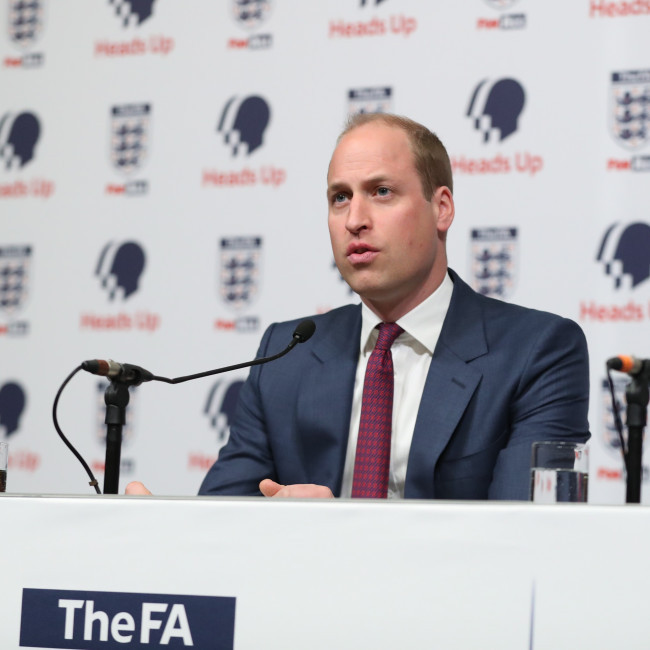Prince William felt like “the whole world was dying” following a traumatic day at work.
The 39-year-old royal worked as an air ambulance pilot with the East Anglian Air Ambulance between 2015 and 2017 and he admitted some of the “difficult situations” he faced took a toll on his mental health.
Speaking on the Christmas episode of Apple Fitness+’s ‘Time to Walk’ series, he reflected about one incident:
“Immediately it became clear that this young person was in serious difficulty, sadly been hit by a car. And of course there are some things in life you don’t really want to see.
“And all we cared about at the time was fixing this boy. And the parents are very hysterical, as you can imagine, screaming, wailing, not knowing what to do, you know, and in, in real agony themselves. And that lives with you.”
The team stabilised the young patient, but once he was off duty, William – who has three children with wife Catherine, Duchess of Cambridge – could still feel a “real tension” inside of him and he felt unhappy for weeks afterwards.
He said: “I went home that night pretty upset but not noticeably.
“I wasn’t in tears, but inside, I felt something had changed. I felt a sort of, a real tension inside of me…
“It really hit me weeks later. It was like someone had put a key in a lock and opened it without me giving permission to do that. I felt like the whole world was dying. It’s an extraordinary feeling.
“You just feel everyone’s in pain, everyone’s suffering. And that’s not me. I’ve never felt that before.
“My personal life and everything was absolutely fine. I was happy at home and happy at work, but I kept looking at myself, going, ‘Why am I feeling like this? Why do I feel so sad?’ And I started to realise that, actually, you’re taking home people’s trauma, people’s sadness, and it’s affecting you.”
The prince felt “lucky” that he was able to open up about his feelings in order to process what he’d seen.
He continued: “I was lucky enough that I had someone to talk to at work in the Air Ambulance because mental health where I was working was very important.
“Talking about those jobs definitely helped, sharing them with the team, and ultimately, in one case, meeting the family and the, the patient involved who made a recovery, albeit not a full recovery, but made a recovery.”
And William’s experience inspired him to want to spread awareness about the importance of supporting mental health and wellbeing.
He said: “We know mental health has been a taboo and a stigma for a long time all around the world. And it still is.
“I’d like to think, in the UK here and the US, it’s much more talked about, and it’s opening up. But there’s still a deep-rooted fear of understanding it.
“And we all need to go through a process of understanding why rather than just give in to those feelings and say, ‘Listen, it’s me. I’m the problem.’ It’s not. It really isn’t you.
“And you’re not alone, and it’s okay. It’s about what you do next. It’s about having that boldness and that openness and that strength to go, ‘It’s going to be a long journey. It’s not going to be easy, but I’m going to get there.’ “
